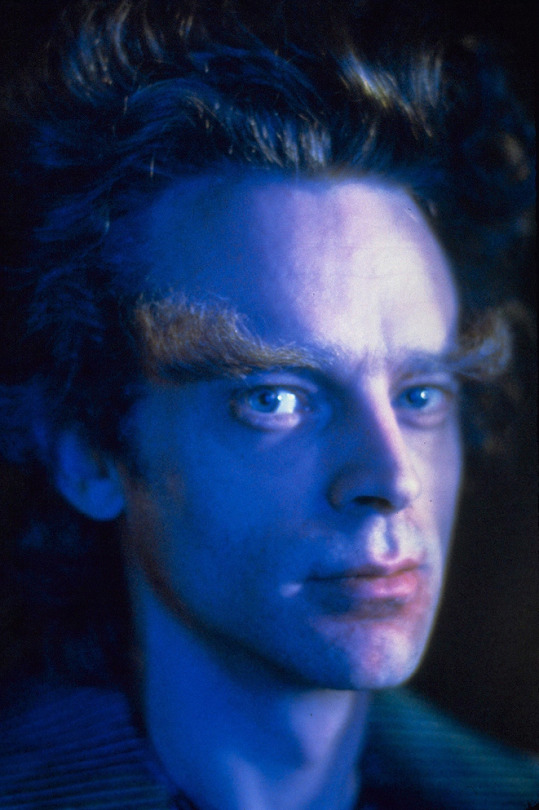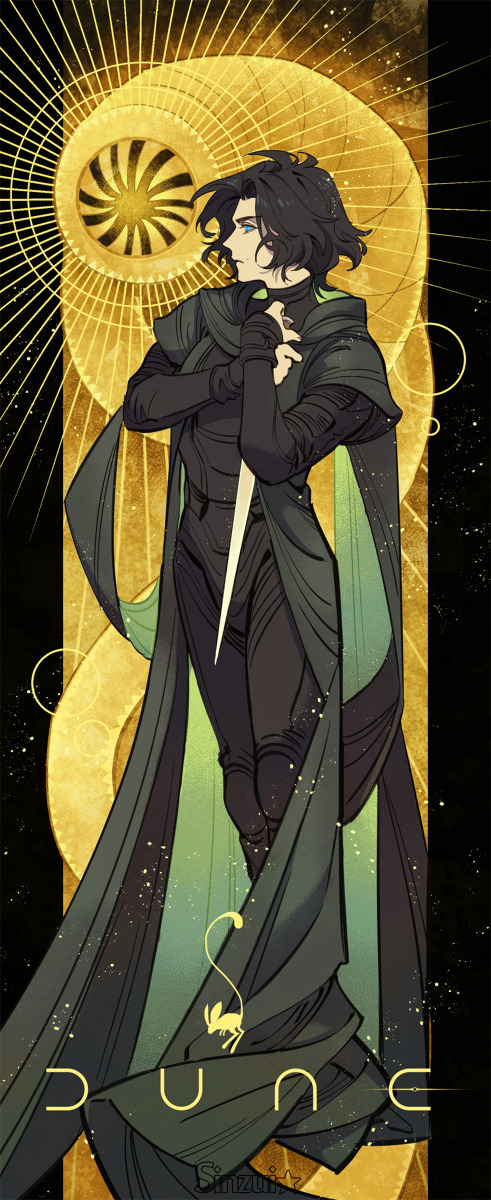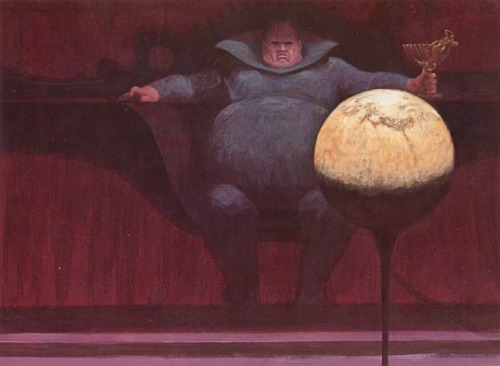
ERIS. a dune sideblog. SEMI-HIATUS.ask me about my alia x marie agenda. analysisabout/tagsmetaaskboxhome
183 posts
Latest Posts by mariefenring - Page 6






Frank Herbert’s Dune 2000 - Sci-Fi I Adventure I Drama I Fantasy








DUNE (1984) dir. DAVID LYNCH
A beginning is a very delicate time. Know then, that it is the year 10191. The known universe is ruled by the Padisha Emperor Shaddam IV, my father. In this time, the most precious substance in the Universe is the spice melange. The spice extends life. The spice expands consciousness. The spice is vital to space travel. The Spacing Guild and its navigators, who the spice has mutated over four-thousand years, use the orange spice gas, which gives them the ability to fold space. That is, travel to any part of the Universe without moving. Oh yes, I forget to tell you. The spice exists on only one planet in the entire Universe. A desolate, dry planet with vast deserts. Hidden away within the rocks of these deserts are a people known as the Fremen, who have long held a prophecy, that a man would come, a messiah, who would lead them to true freedom. The planet is Arrakis. Also known as Dune.
Animatic of the opening scene from Jodorowsky's Dune (unmade)
Art: Moebius Directed: Alejandro Jodorowsky Year: mid 1970s As seen in 'Jodorowsky's Dune' (2013)
As the release of DUNE looms, I find myself thinking deep thoughts about the story again. When people who haven't read it ask me about it, I usually say something along the lines of, "It's an extremely important work in the sci-fi genre, on the level of Lord of the Rings for fantasy, amazing worldbuilding, but it's very dry and the author was a white man in the sixties." Well, it occurs to me that "white man in the sixties" can mean a lot of things, so let's talk more about what it means for Dune!
I see two common criticisms leveled at Dune. The charge of biological essentialism, and the charge of it being a white savior narrative. It is not a white savior narrative, and I'll explain why below. The charge of biological essentialism is accurate, and I'll go into that more as well.
Without getting too spoiler-heavy, the plot of Dune is that Paul Atreides, heir to Duke Leto Atreides, moves to the planet Arrakis when the Emperor awards the planet to House Atreides in fief complete. Basically, the universe in Dune is space feudalism, and House Atreides is one of many noble houses engaged in feudal government. When Paul shows up, the local, oppressed populace, the Fremen, think he's a foretold, prophesied "chosen one," here to lead them out of bondage. Then House Atreides gets betrayed and mostly destroyed, Paul goes into hiding with the locals, and eventually uses them to overthrow his enemies and take back the planet, as well as leveraging the planet's strategic importance and his control of it to place himself on the Emperor's throne.
So, on the surface, definitely white savior stuff. But even a slightly deeper reading, an analysis designed to actually interrogate the text and not just generate a pithy headline to garner outraged clicks, will tell us that this isn't accurate. For one, Paul is a chosen one, but he's not the Fremen's. He is the product of a millennia-long scheme by a shadowy cabal of mystics called the Bene Gesserit to breed a superhuman. We'll get into this more in the biological essentialism bit, but the Bene Gesserit have infiltrated all walks of life throughout the future. They have a branch called the Missionaria Protectiva, which sends operatives to primitive worlds in the guise of religious prophets and has them plant broadly-worded, easily exploitable prophecies and beliefs in local populations. Then, later, if another Bene Gesserit operative shows up and needs, say, an army of religious fanatics, they say the right words and present someone who fits the broad criteria and boom, you have a chosen one.
This is exactly what happens in the book. Paul's mother Jessica is a Bene Gesserit member, and when they go into hiding, she exploits the fact that a Manipulator of Religions has been on Arrakis to maneuver Paul into position as the Fremen's chosen one. Paul himself is trying to resist embracing the mantle, because he knows that if he leans fully into it the Fremen will go on a wild crusade across the universe and burn everything down in his name. At the end of the novel, he realizes that the jihad is inevitable, that there was no way at all to stop it - even if he had killed himself, he would have become a holy martyr. A certain Fremen character, dying out in the desert, hallucinates his father, who tells him, "No more terrible disaster could befall your people than for them to fall into the hands of a Hero." This is Herbert telling us on the page, in a scene that matters very little to the overall plot, that Paul's very presence on this planet, his status as the Fremen savior, is a terrible tragedy. We are supposed to sympathize with Paul because all of his enemies are categorically worse than he is, but this is not a book about Good People Doing Good Things. Paul is an oppressor, a feudal duke, a tyrant. His story is a *warning.*
Now, where the book gets very sticky: the biological essentialism. I'll quote the OED here: "The belief that ‘human nature’, an individual's personality, or some specific quality (such as intelligence, creativity, homosexuality, masculinity, femininity, or a male propensity to aggression) is an innate and natural ‘essence’ (rather than a product of circumstances, upbringing, and culture)."
In Dune, men and women are biologically distinct on a fundamental, universal level. The aforementioned Bene Gesserit are an order of women. Using the spice (which must flow), they can look backward in their body's genetic memory along matrilineal lines, becoming essentially gestalt consciousnesses of thousands of people. One of their order's chief goals is to create the Kwisatz Haderach, a man who can look back in his body's memory in the same way, but can do so along both male and female lines. There is a scene in the book where Paul explains it - to summarize, in everyone there is a place that takes and a place that gives. Women can look into the giving place, but are terrified of the taking place. Paul, once he has reached apotheosis as the Kwisastz Haderach, can look into both places.
There's a lot of other hoo-hah about men and women having different dispositions - Duke Leto at one point asks Jessica how she can so easily set aside her concerns and distractions, and she says "It's a female thing." When Jessica becomes a Reverend Mother, looking back into her body's memory, she's pregnant with her daughter Alia. Alia also becomes a Reverend Mother in the same instant, before she's even born, and it's made explicit that if she had been a male embryo (because she is less than two months gestated at this point!) she would have died.
This is what people are talking about when they say that an author's world view shapes their work. Herbert was writing in the sixties. Biological sex and gender were not understood to be separate concepts. The Nazis had destroyed the vast majority of all scholarly research into transgender people, since most of it had been done at a university in Germany. Homosexuality was still illegal (reflected in the book's main antagonist, Baron Harkonnen, who is a homosexual pedophile, and in 'effeminacy' being a damning trait in male characters in the book). I'm not saying these things to excuse the fact that he wasn't progressive in his views. I'm saying this because his views and understanding of the world around him literally shape the laws of his universe. In Herbert's mind, men and women were fundamentally distinct, and so in the universe of Dune, they are.
I'm interested in seeing how the film addresses these issues - whether it chooses to just kind of ignore them and hope we don't notice, or if it's going to try to update these archaic notions for modern sensibilities. Dune is a seminal piece of worldbuilding - Herbert's realization of this universe, its eddies and flows of power, the way the entire society is structured around the consumption of spice, the understanding he demonstrated of the feudal system in his translation of it to a far-flung future, and indeed, I maintain, Herbert's multi-layered criticism of the white savior trope - it's all undermined by the fact that the structure of the world itself reflects unfortunate, backward, biological essentialist thinking that we as modern people can no longer engage in.
Anyway that was a very long ramble. If you actually read all this, you're a beautiful, patient soul. :v









“Once I put myself in their skin, and get rid of all the onion skins, the levels between the inside and the outside, I feel I can then help create the bridge from the actor to the character. I did psychological studies on each of these characters. Lady Jessica is basically a concubine but a very intelligent one and a highly trained Benne Gesserit. Not only does she have a mystical side but she also has an intelligent, old soul side. I wanted her outfits to be both compellingly nun-like, but also appropriate for a courtesan, which is also what she is. I had to embody all of those somewhat contradictory things in her costumes.
So I went to Goya, who is one of my favorite painters. I’ve always felt there are two painters from the past who would be filmmakers if they lived today. One is Goya and the other is Giotto. I took from both of them — Giotto more for the nun-like Benne Gesserit; and more Goya for Lady Jessica, because there’s a deep, Spanish romanticism in his paintings, especially The Clothed Maja. That’s where I got the idea for the laced dress for her. I didn’t use Spanish lace, but I had a lace made that looked very much like the future, but with a real romantic touch from the past.” - Jacqueline West, Costume Designer on Dune
Rebecca Ferguson as Lady Jessica in Dune (2021) dir. Denis Villeneuve



dune: part two, dir. denis villeneuve (2024) sharp objects, gillian flynn (2006)
The Villeneuve Dune(s) can be broadly interpreted as one of the two possible futures Paul sees in the original novel
Spoilers below for Dune Part Two. (And for the original novel, but that's been out since the 60s.)
He had seen two main branchings along the way ahead--in one he confronted an evil old Baron and said: "Hello, Grandfather." The thought of that path and what lay along it sickened him.
The other path held long patches of grey obscurity except for peaks of violence. He had seen a warrior religion there, a fire spreading across the universe with the Atreides green and black banner waving at the head of fanatic legions drunk on spice liquor. Gurney Halleck and a few others of his father's men--a pitiful few--were among them, all marked by the hawk symbol from the shrine of his father's skull.
"I can't go that way," he muttered. "That's what the old witches of your schools really want."
Obviously the Doylist explanation for why there are differences in the new films is that the original book is 60+ years old and has certain elements no longer in cultural vogue that were adapted out or altered to better fit modern sensibilities, and I'm all for that. But I did find it interesting that there is an explicit moment at the end of Part 2 where Paul confronts the Baron, utters the "Hello, Grandfather," line, and kills him.
This isn't necessarily because there is any one choice that Paul makes throughout the course of the two movies that leads here instead of to the jihad. In point of fact, most of the changes that drive him here are caused by choices made in the adaptations of the films.
The causal chain that leads to Paul undertaking the spice agony is his failure to predict the attack on Sietch Tabr, rather than his failure to predict Gurney's attack on Jessica; this is, of course, necessitated by the omission of the Harkonnen scheme in part 1 to impair Thufir's Mentat efficiency and potentially drive a wedge between Leto and Jessica by framing Jessica as the traitor. The final push that causes him to make the decision is, of course, the vision he experiences of an alternate future in which he didn't have to kill Jamis, with Jamis counseling him to climb as high as possible before the hunt so he can see as far as possible. (In other words, he ignores Stilgar's advice of not listening to the djinn.)
Similarly, his killing of the Baron is necessitated by the adaptational choice to keep Alia as a fetus so the audience doesn't have to deal with a two-year-old talking like an adult and killing the Baron, which they probably did because it would have been distracting.
However, I might argue that a Watsonian explanation for the film omitting the two-year time-jump lies specifically with Paul's decision to explicitly disavow the prophecy when Jessica undergoes the spice agony, and to explain to the Fremen that her survival is because of her Bene Gesserit training. He then attempts to secure his position with the Fremen through secular deeds, rather than letting Jessica carve a place for them with the BG prophesy.
This disagreement between the two of them causes her in turn to take a more active approach in cultivating Paul's status as Lisan al-Gaib, which accelerates the timeline of the Fremen being ready to submit to him. In turn, Paul focusing more strongly on guerrilla war against the Harkonnens accelerates the timeline of Feyd-Rautha being put in charge of Arrakis and cracking down hard in the north, leading to the aforementioned crisis point of Sietch Tabr being attacked without Paul's foreknowledge.
Notably, while we do see the shrine of Leto's skull in the film, we only see it in a vision; there is no moment in the movie where Paul explicitly finds his father's remains and enshrines them. Hence, going from a strict interpretation of the film's "text," this is not the future in which the legions are marked by the shrine, because the shrine doesn't exist. It is the other future. The compression of time means that Paul and Chani's relationship is much newer and more fragile and doesn't survive the strain of his apotheosis, and that's what sickens him most.
Of course, the "Hello, Grandfather" path also leads to the jihad, because Paul's tragedy is that his very existence was always going to lead to it, regardless of what he chose to do.
And Paul saw how futile were any efforts of his to change any smallest bit of this. He had thought to oppose the jihad within himself, but the jihad would be. His legions would rage out from Arrakis even without him. They needed only the legend he already had become. He had shown them the way, given them mastery even over the Guild which must have the spice to exist.
Obviously none of this passes explicit, close scrutiny, and is more of a fun "if you squint and look at it a certain way it kind of makes sense." I expect that the line was put in as a nod to the original book, no more or less, but making up head-canons like this is fun for me and if even one other person finds it edifying then I consider sharing it time well spent!


I've been putting off drawing Alia for too long......
!["There Were A Couple Of Scenes [in Dune (2021)] That Were All About The Training Technique. There Was](https://64.media.tumblr.com/3cc8dde37f391cbc79313fa767e00c57/ca821b0ae5f7b6cc-97/s500x750/e340601583ea0a86c4c86805c694982cb5b5efec.jpg)
!["There Were A Couple Of Scenes [in Dune (2021)] That Were All About The Training Technique. There Was](https://64.media.tumblr.com/3b97a55f0a92789e3bcc6be3042b46b3/ca821b0ae5f7b6cc-02/s500x750/c7a47713e3d871cdd1701f5235ca699c1877979b.jpg)
"There were a couple of scenes [in Dune (2021)] that were all about the training technique. There was one scene that I was quite sad they cut away. There are physical training methods, where Jessica teaches Paul the art of fighting with the knives that he later uses on Jamis [the Fremen warrior played by Babs Olusanmokun]" - Rebecca Ferguson for The Hollywood Reporter
Rebecca Ferguson as Lady Jessica and Timothée Chalamet as Paul Atreides photographed by Chiabella James on set of Dune (2021) | "The Art and Soul of Dune" and "Dune: Part One : The Photography"



Returning to my Dune fanart posting >:)c
Sister portraits of Feyd-Rautha with my two different designs for him. The longer haired one being Feyd as he is in the beginning of the book, gloomy and completely oppressed by the Baron. The shorter haired one being Feyd as he is by the end of the book, older and cockier but far less free from the Baron’s influence than he seems to think he is.
Process pics under the cut




I think people don't really understand why Baron was always supposed to be a ridiculous kind of villain and he was meant to die almost on accident, with no bang whatsoever.
There is a reason why Paul wasn't the one that killed him in the books. Baron was a shadow of a pawn and by the end of the story, Paul is so far above him, that he really couldn't care less. When he hears about his death, he doesn't give a single fuck.
He doesn't even care enough to kill Mohiam. He is beyond Guild's control, not to mention Emperor's or Jessica's.
They should all fear him. They can't do anything to stop him.
And Baron? This dude wouldn't even be able to bring down Leto, if it wasn't for Peter and him breaking an imperial conditioning for doctor Yueh.
What the movies fail greatly to present is how much the scale shifts over the story. What the message behind it all means. Because Harkonnes are the easiest kind of villains to spot, but in the end, maybe they are not the worst.
Maybe Paul himself is the worst.
Plans within plans don't exist in new Dune movies. It's as simple as that.
Even Feyd doesn't die because he's a Harkonnen. That's what Gurney thinks, that's what Fremen and even Emperor believe is happening. But Feyd dies because Feyd is almost Paul himself.
Baron is only as important as far Alia's story goes.
He was always her villain. Not Paul's.
The entire weight of her arc in Messiah shifts now, and I honestly hate it.
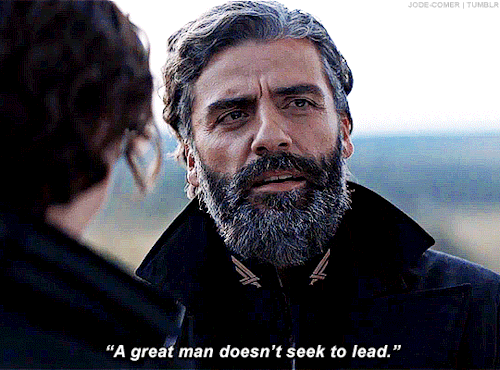
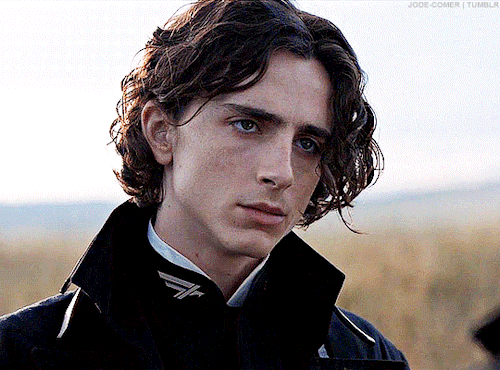
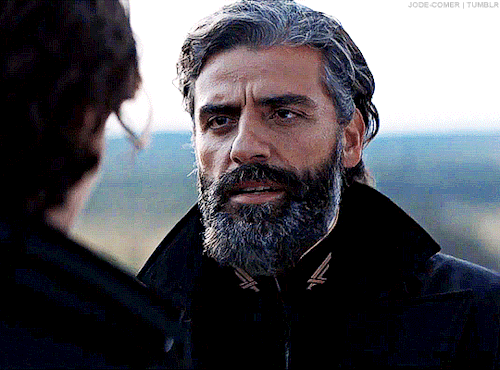
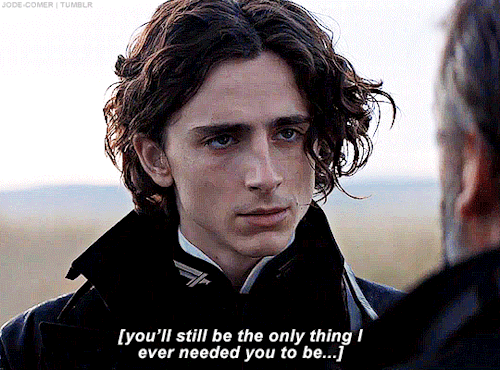
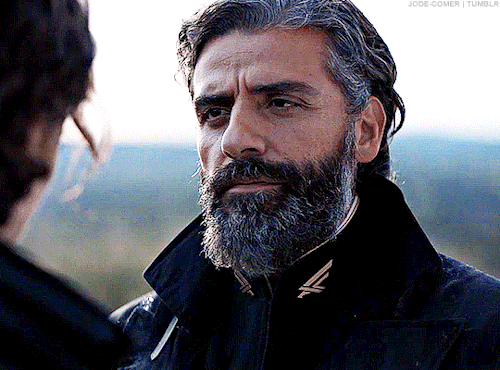
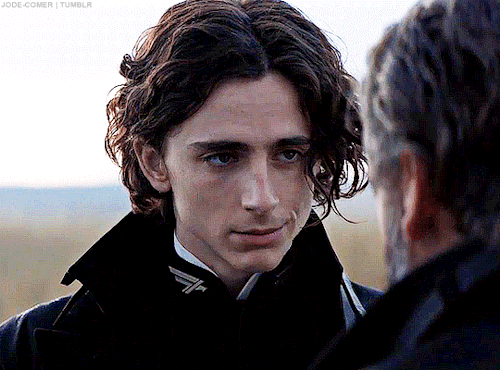
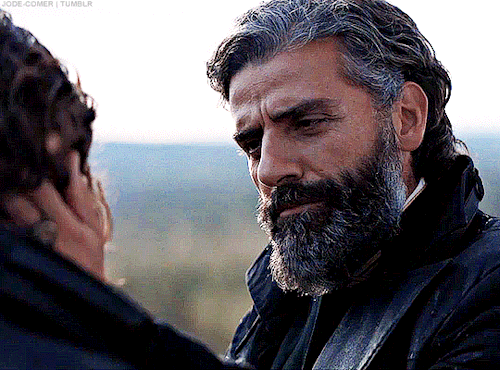
What if I’m not the future of House Atreides? Dune (2021) dir. Denis Villeneuve
something funny and highly specific to consider about feyd-rautha from a meta perspective is that all of the actors who have played him either are musicians or have played a musician.
in lynch's dune, feyd is played by Sting, lead vocalist and songwriter for The Police.
in jodorowsky's planned adaptation of dune, feyd was planned to be played by (and his design highly based on) Mick Jagger.
in villeneuve's dune, feyd is played by Austin Butler, who shot to fame for his portrayal of Elvis.
also worth noting: all three of these musicians have — to a certain degree — an element of rebelliousness and sex appeal that characterises their 'on-stage' persona.
i mean, just take a look at this quote about Mick Jagger from Philip Norman's symphony for the devil: the rolling stones story:
"[...] his conflicting and colliding sexuality: the swan's neck and smeared harlot eyes allied to an overstuffed and straining codpiece."









Paul Atreides & Feyd Rautha in Dune: Part Two // Dune by Frank Hubert, Chapter 48
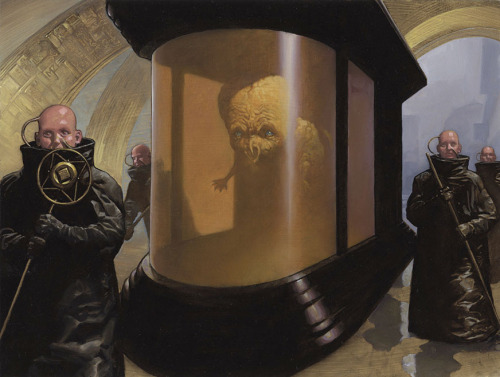
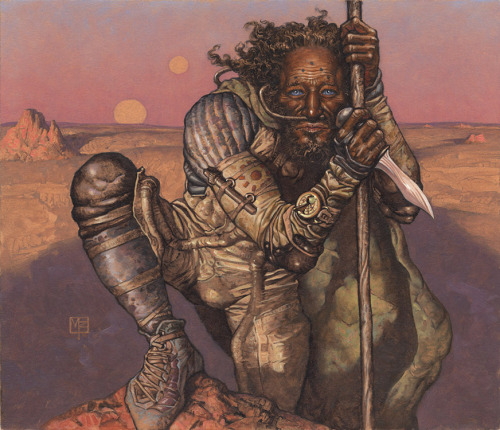
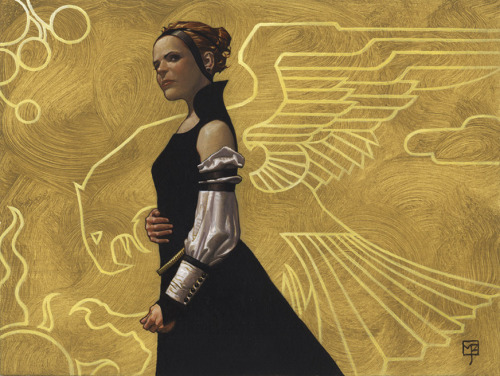
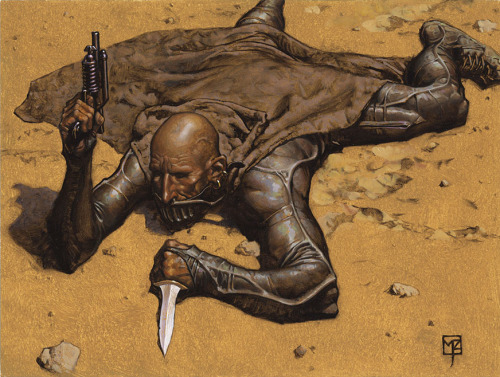
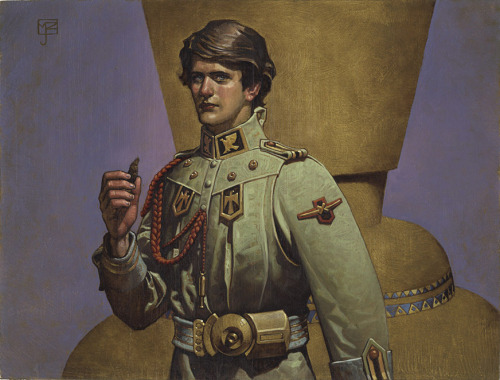
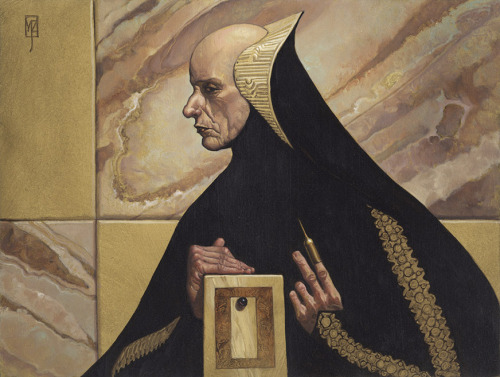
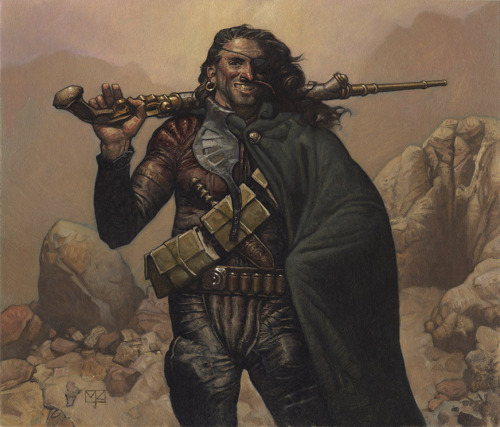
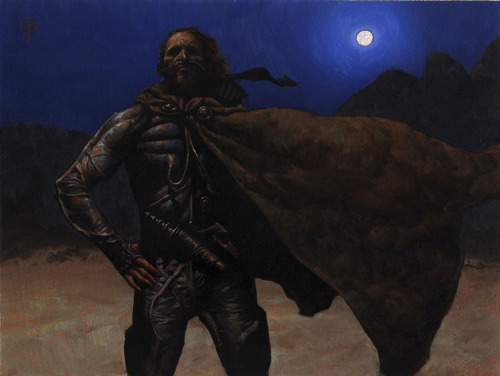
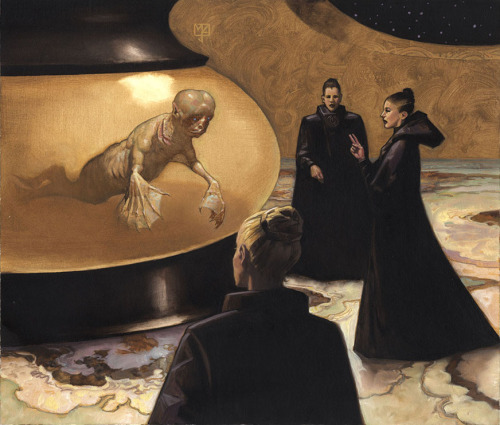
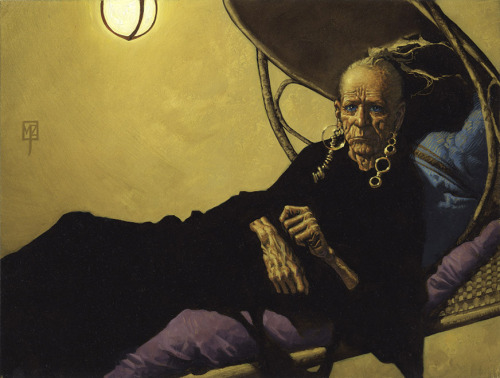
In 1997, Last Unicorn gave Zug the chance at recreating Frank Herbert’s ‘Dune’ through a new trading card series. He was originally told to base his work off of David Lynch’s film, but after complications with licensing, “they told me to avoid similarity to Lynch’s visuals” says Mark Zug.
Click here to see the rest.
dune is about the forces that humanity lives at the mercy of, both natural and man-made. it's about how power exerts itself upon the powerful, how they're controlled by it as just as much as they control it. it's about how people become locked into a process of history that they as individuals are nearly powerless to control, so much so that even being able to see the future only serves to show how trapped you really are. it's about all of this more than it is about any individual characters and this is something that no adaptation so far has gotten right


Dune: Part Two, dir. by Denis Villeneuve // A Panathenaic amphora (Greece (Attica), ca. 365BC - 360BC) (x)

